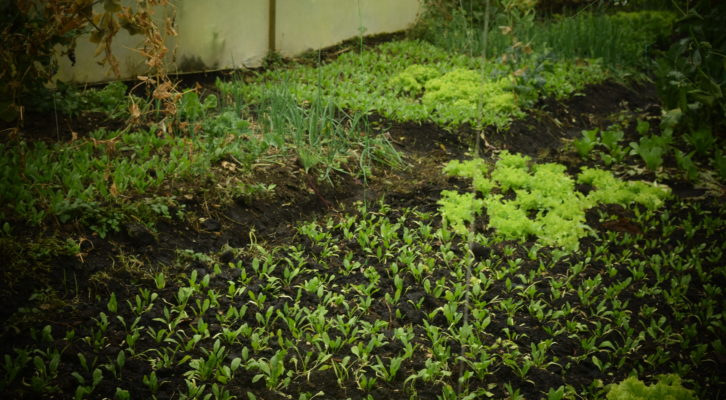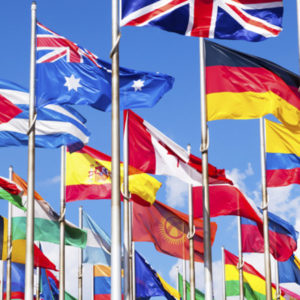The “campesino” identity does not have an exact translation from Spanish. The “campesinos” establish different forms of land tenure, which vary according to the region of the country, related by the family, community and associative ties. In Colombia, 31% of the population is rural, however, there are no figures on how many “campesinos” exist, because the “campesino” identity does not have political recognition, therefore there is no differential public policy, even though the “campesinos” fulfill a central role in guaranteeing the right to food, food security, and sovereignty. However, to the extent that the construction of peace in a process that invites inclusion, collaboration and dialogue in this article we address a reflection on the importance of recognizing the right to political recognition to representatives of “campesino”, family agriculture and community to build peace in Colombia.
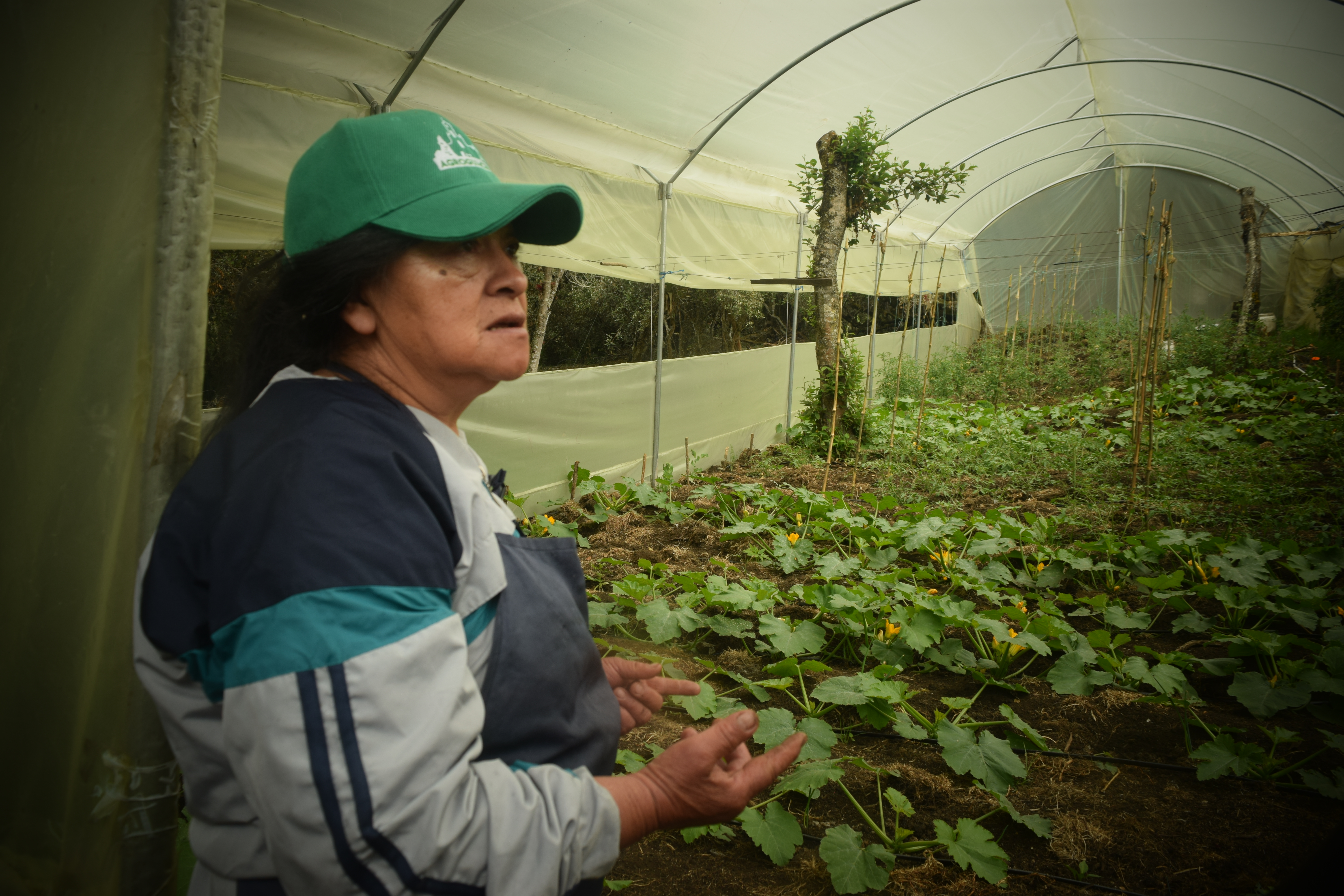
Clementina is a “campesino” from Colombia. Photographer: Ana Prada.
Historical Review
Since the time of the Spanish conquest of Colombia, the recognition of “campesino”, family and community agriculture (Tovar) has been pending in the political and economic agenda. With the arrival of the Spanish conquerors during the 15th century, the demographic landscape of what we now know as Latin America changed, the indigenous peoples came to coexist with Spaniards, African slaves who came from Ghana, Nigeria, and Cameroon, among other countries. The heirs of Spaniards who concentrated the lands were largely dedicated to livestock and leisure, the descendants of Africans specialized in agriculture and fishing, the descendants of Indians were engaged in agriculture. Thus, the demographic process of what we know today as Colombia has been characterized by biocultural diversity, the development of an extractive economic model without added value and the concentration of land (Tovar, 1975).
In the encounter between Spaniards, indigenous people and people of African descent a new identity was born, that of “campesino”, which in Colombia is understood as a specific historical product, with multiple and diverse origins, with variable and different identities, in relation to agricultural production trends framed by political processes, forms of violence and presence of multiple actors. From the perspective of the academy and the Colombian social movements, the “campesino” identity is understood as a multidimensional issue, which corresponds to:
- A sociological – territorial dimension, framed by close relations between its rural neighbors.
- A sociocultural dimension, with cultural characteristics distinguishable from other identities such as the indigenous, Afro-descendant or mestizo.
- A productive economic dimension, characterized by a way of direct relationship between labor and land, as collectors, growers, and breeders. “Campesino” life is protecting biodiversity for food production and the performance of services. (ICAH).
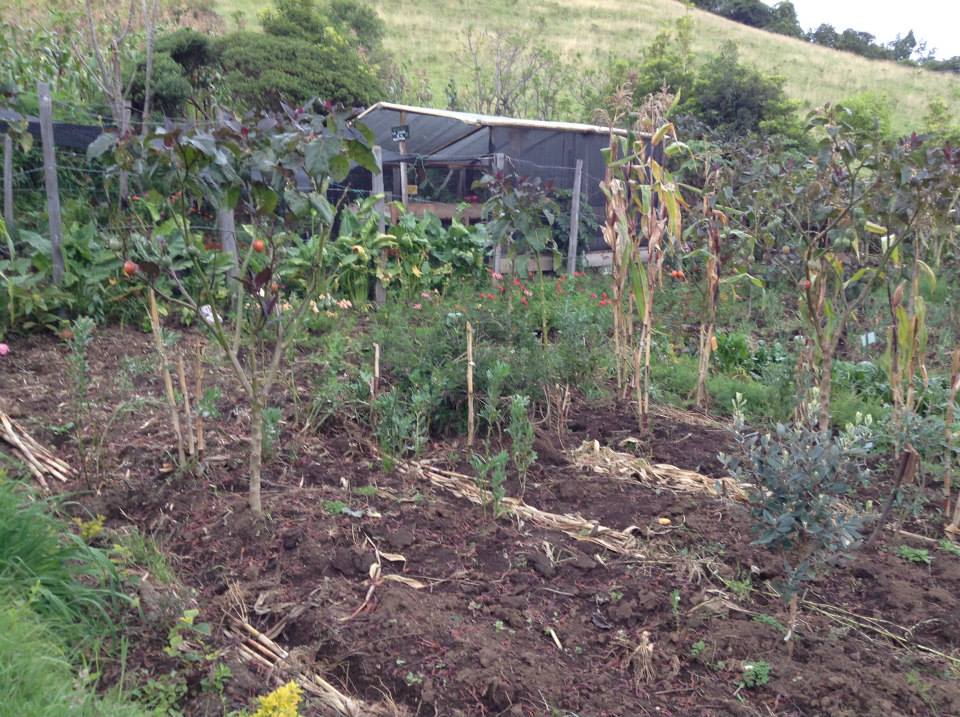
Campesino orchard in the Department of Nariño. Photographer: Ana Prada.
On the Political Framework of “Campesino”, Family and Community Agriculture
On the other hand, in Colombia with Resolution 464 of 2017 that defines the guidelines of public policy for “campesino”, family and community agriculture, which is born from the pressure of civil society, especially from the National Family Agriculture Network. The Resolution was born within the framework of the implementation of the Peace Accords, close to the first point of Integral Rural Reform. This political document defines “campesino”, family and community agriculture as “the system of production and organization managed and operated by women, men, families, and “campesino”, indigenous, black and Afro-descendant communities that coexist in the territories rural areas of the country. In this system, main activities of production, transformation, and commercialization of agricultural, livestock, fishing, aquaculture and forestry goods and services are developed; which are usually complemented with non-agricultural activities” (Ministry of Agriculture of Colombia, 2016)
What the Detractors of “Campesino”, Family and Community Agriculture Say
In 2016, the English economist James Robinson expressed his arguments for which the “campesinos” should become rural workers, inspired by the English experience during the Industrial Revolution, this is a discourse that is frequently found in Colombia, in the debate on which one should be the horizon of rural development in a country in which 97% of the territory is rural and 77% of the land is concentrated in 13% of the owners (SEMANA, 2012), what Robinson forgot in his argument is that “campesino” agriculture, family and community represents an identity, rather than a productive model and that the historical exclusion of this identity and its right to territory is deeply linked to the configuration of the Colombian armed conflict.
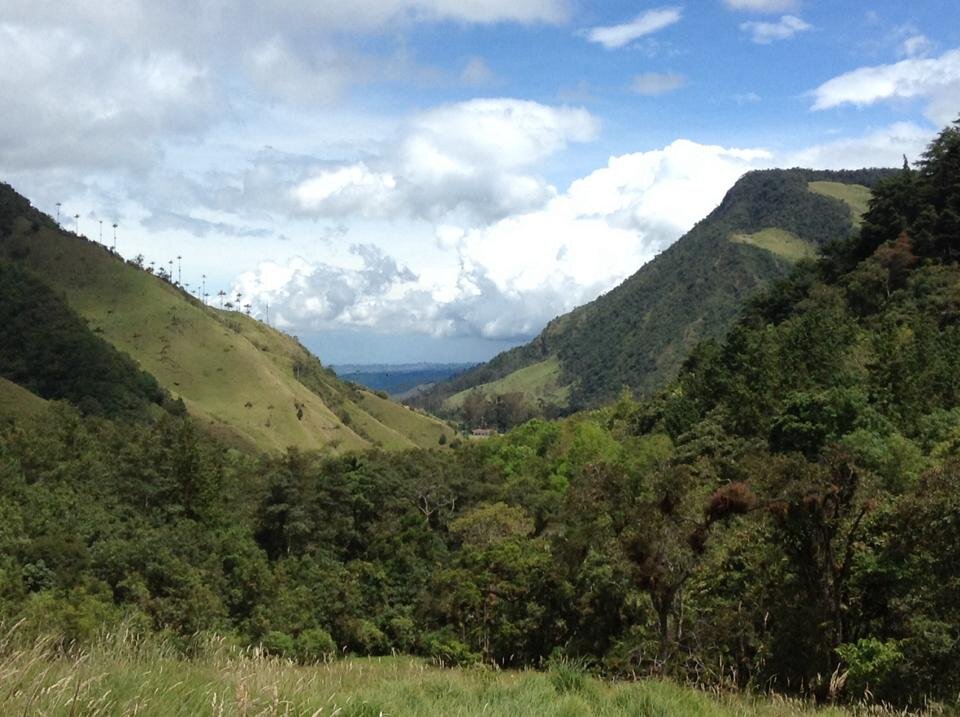
Cocora Valley, Quindio department. Photographer: Ana Prada.
Robinson, with economic determinism, in defense of the traditional thesis of modernization, argues that the “campesino” in Colombia must disappear, that this is a natural effect of development and his disappearance will bring the progress of the country as it happened in 18th century England. According to Robinson, it is irrelevant to devote efforts to support the “campesinos” and the proletarization of the “campesino” should be promoted. In contrast, Francisco Gutiérrez -Director of the Observatory of Land Restitution- defends agrarian reform and support for the “campesino” as a strategy for the development of the country and as a condition for peace in the regions of Colombia.

Coffee harvest in the Cauca department. Photographer: Ana Prada.
Rethink the Current Economic Model to Build Peace
It is here when it becomes clear that the economy cannot be understood separately from the social, the political and the cultural. The lack of political will to integrate the agrarian into development plans and the neoliberal model puts “campesino”, family and community agriculture at a crossroads. The direct relationship with nature to which the farmer is exposed has historically favored the “campesino” to relate and move around the world in a particular way, in which the family economy represents a significant element of his daily life.
In addition, the ways in which natural resources are extracted in Colombian territories injure the productivity of soils, increase the cost of living, create highly unstable and risky incomes for local people, without counting the environmental liabilities they generate. However, “campesino”, family and community agriculture contribute to the mitigation of climate change (FAO , 2015).
During the next decades, the increase of the climate in Colombia is an irreversible fact, for 2050 the temperature can increase 4 degrees (PACIFISTA, 2018). This situation can generate more migration from the countryside to the city that already exists and can also generate conflicts over access to water. Small producers, both rural and neo-rural, are undertaking life projects that question the status quo, in which the agroecological perspective fits, which contribute to solving problems of food security and sovereignty while allowing processes of mitigation and adaptation to climate change. It has been found that the projects originate from own motivations or political will, the latter manifested in programs of sustainable agriculture, watershed protection and strategic ecosystems (3Colibrís, 2018).
Ethics becomes key in the epistemological reflection of the economy, the type of economic model in which we want to live, perhaps economic thought should resume its origins together with political science, economics whether we like it or not, it is a political issue, if the economy does not solve the needs of the marginalized – of the social and natural system – it is not advancing, it will only reproduce as it has done historically in defense of the winners.
When human actions put their own existence and that of their environment at risk, it is imperative to change certainties.
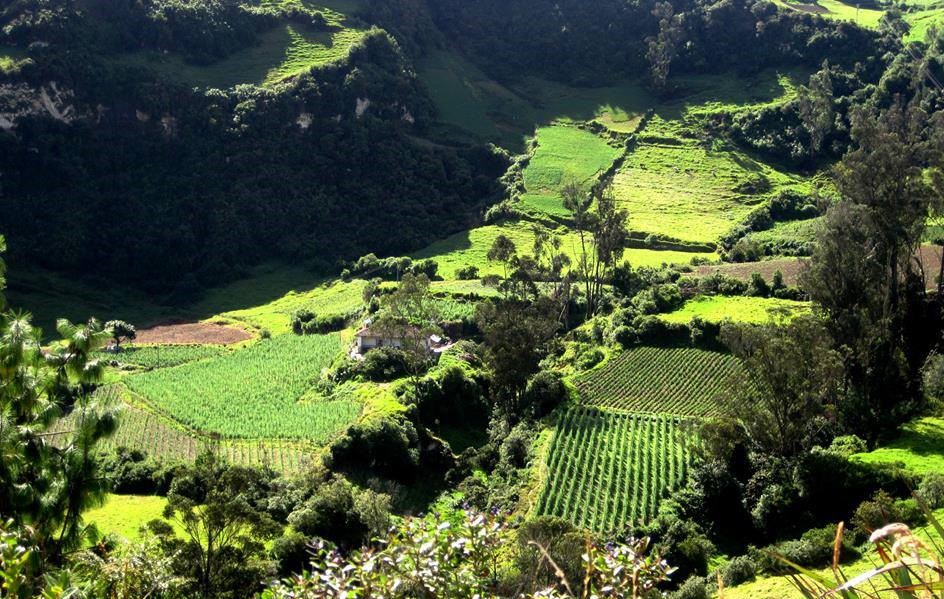
Campesino landsacape, Nariño department. Photographer: Ana Prada.
Ana Prada is Colombian activist, she had studied business administration, and sociology at the Javeriana University of Bogota and Alumni of the International Training in Dialogue and Mediation of the University of Uppsala. She is the founder of the 3colibris media, currently working for Caritas Colombiana in relation to the implementation of the “article one” of the Peace Accords. Ana has worked on projects for UNDP, UNFAO, UE, Suyusama Foundation. In addition, she is interested in the Colombian and Latin American rurality and has accompanied organic and agroecological production processes in Colombia, Mexico, Guatemala, Costa Rica, Ecuador, and Peru.
References
-3Colibrís. (2018, January 15). 3Colibrís.com. Retrieved from ¿Mitigamos los causantes del cambio climático o nos adaptamos a él?: https://3colibris.com/2019/01/14/mitigamos-los-causantes-del-cambio-climatico-o-nos-adaptamos-a-el/
-FAO . (2015, July 02). FAO.ORG. Retrieved from Agroecología es clave para erradicar el hambre en América Latina y el Caribe.: http://www.fao.org/americas/noticias/ver/es/c/297484/
-Ministry of Agriculture of Colombia. (2016). Public Policy Guidelines for campesino, family and comunity agriculture. Bogota, Colombia: Ministry of Agriculture of Colombia.
-PACIFISTA. (2018, Octuber 23). Pacifista.tv. Retrieved from Cambio climático y posconflicto: dos desafíos que se funden en Colombia: https://pacifista.tv/notas/cambio-climatico-y-posconflicto-dos-desafios-que-se-funden-en-colombia/
-SEMANA . (2012). SEMANA.COM. Retrieved from Así es la Colombia rural: https://especiales.semana.com/especiales/pilares-tierra/asi-es-la-colombia-rural.html
-Tovar, H. (1975). El movimiento campesino en Colombia durante los siglos XIX y XX. Bogota: Libres.


